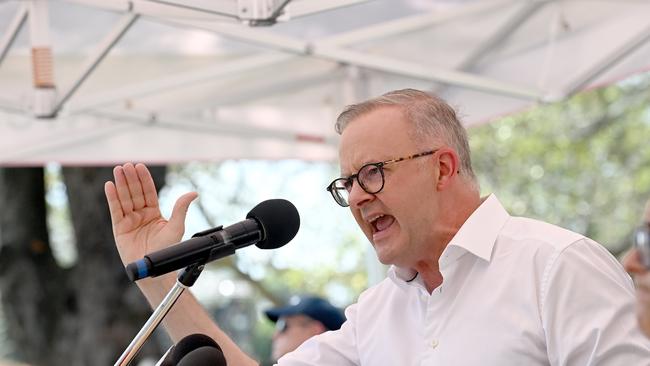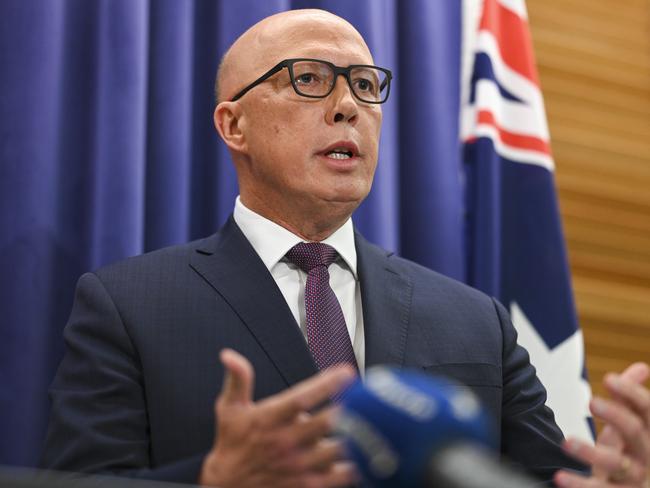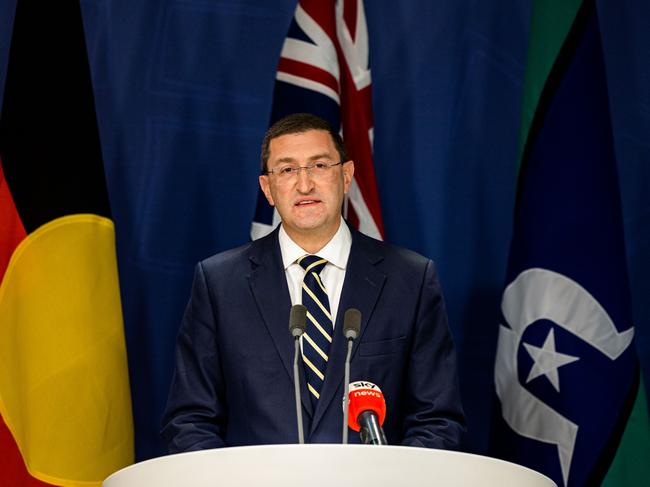
The whole process of government decision-making will be dramatically elongated in all areas, but nothing illustrates how decision-making will change better than the budget.
A large number of Australian companies are thinking of supporting the “yes” vote because, understandably, they want to be seen to be supporting an Aboriginal voice in the constitution. And a whole group of high profile entertainers and sports people are also being enticed.
And there is no doubt that wide areas of the population, including myself, want Aboriginal and Torres Strait Islander recognition in the constitution.
But as I wrote last month, sadly, the First Nations’ heritage is now almost a side issue.
This is a referendum about our future system of government which will have major implications for vast numbers of enterprises, national productivity, and arguably eventually the sharemarket and interest rates.
Today, I will describe how this Albanese system of government will impact the budget.
But I could have chosen almost any area of direct government activity.
The High Court will determine how it applies to decision-making in bodies like the Reserve Bank.
Under this new system we will set up a fourth arm of government to join the parliament, the public service and the courts.
There are more than 300 Aboriginal nations, and almost certainly each Aboriginal nation will seek representation in this fourth arm of government.
This new arm is to be empowered “to make representations to the parliament and the executive government of the Commonwealth on matters relating to Aboriginal and Torres Strait Islander peoples”.

There is deliberately no limitation on the number, so as long as some First Nations people are impacted, the new arm has “representation” power.
Nothing parliament might do will remove that constitutionally enshrined power over the parliament plus “the executive” – a body that certainly encompasses all departments and cabinet but may be defined more broadly by the High Court.
Such an enormous task will naturally require a large bureaucracy for the voice.
Now to the budget.
Every federal budget is prepared on the basis of recommendations from almost every department and given every department is part of the “executive”, the voice body (and its bureaucracy) must be given opportunity to have input on each of those recommendations as long as a number of First Nations people are impacted.
In practical terms, that will cover the vast majority of departmental recommendations, so we’re dealing with countless hundreds of issues.
Naturally, the new body will need to be told what is proposed and be given sufficient time to make “representations”.
Then given this is a constitutional power each department will need to give due consideration to each “representation” and if that process is not followed then that department will be hauled before the High Court.
Then the cabinet will need to decide which of the recommendations they should adopt.
Once again, as the cabinet is clearly party to the executive, cabinet matters will need to be reviewed by the voice, so it can make representations.
There will obviously be many test cases before the High Court, which will set rules for consultation with the voice and consideration of voice recommendations.
But all departments and cabinet will need to have a clear case as to why the voice representations were not adopted and if the case is not properly set out then it will be an option for the voice body to claim before the High Court that not enough attention was paid to their representations.
Public servants and politicians will find it easier to adopt voice representations and avoid the legal challenges.
It is possible the full apparatuses will not be in place for next year’s budget, so there might be interim relief granted by the High Court.
But from then on the budget deliberations (like all other government deliberations) will be totally transformed.
Now the above does not mean that decisions won’t be made but it does mean the decision making process becomes much longer and government departments must be much larger.
Because the First Nations’ power is enshrined in the constitution naturally its “representations” will carry greater weight than most other influences.

Those constitutional lawyers who say the new powers will not cause these large delays believe the High Court will set out procedures to streamline the process.
That is a legitimate point of view but, other constitutional lawyers believe the powers being awarded in the constitution are so wide that over the time, High Courts are likely to follow the words in the constitution and not interpretations that speed the process.
The corporate sector and others wishing to influence government will need to double their lobbying capacity because they will need to lobby not just the government departments/politicians but the voice body as well.
My guess is that it will take well into each financial year before a budget can be put before the parliament.
The ability of the voice body to make representations to the public service and cabinet is clear-cut, but what is less clear-cut is whether the voice will be able to attempt to influence parliamentary decision-making should the parliament believe enough “representation” has been made.
Normally, the High Court does not interfere will parliamentary matters.
But everything the parliament does has to be subject to the constitution, so future Parliaments may have to allow time in their legislative programs to hear further “representation” from the voice.
We are now living in a world of considerable change, and it requires governments of any persuasion to have the power to adapt. Australia is going to be bogged down in coming years with almost endless litigation as we map out the incredible powers that this new body will have.
If the Coalition is to put an alternative view to the “Albanese system of government” then they will need a person who can argue the issues created by the voice on talk back radio and television plus social media.
Peter Dutton so far has not shown an ability to do that.
The most obvious person to be the spokeswoman for the Coalition on the real referendum issues is Jacinta Price, albeit she is in the Senate and is not a lawyer.
If a lawyer is required, then maybe it should be Angus Taylor.
It will be a far more important task than being shadow treasurer.







There will be no more federal budgets in May in the way we know them now if the Indigenous voice to parliament addition to the Australian constitution is approved and operates from January 1, 2024.